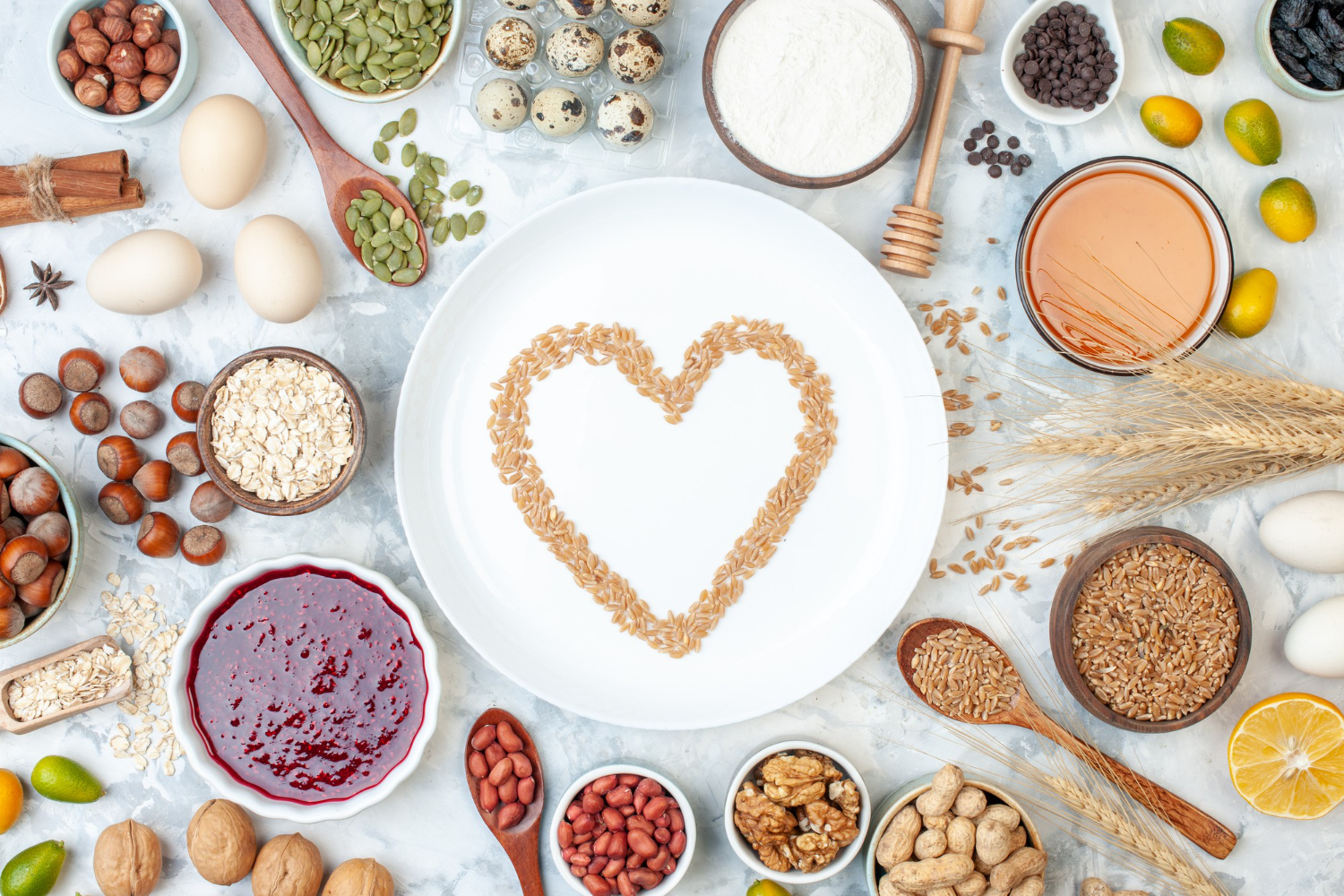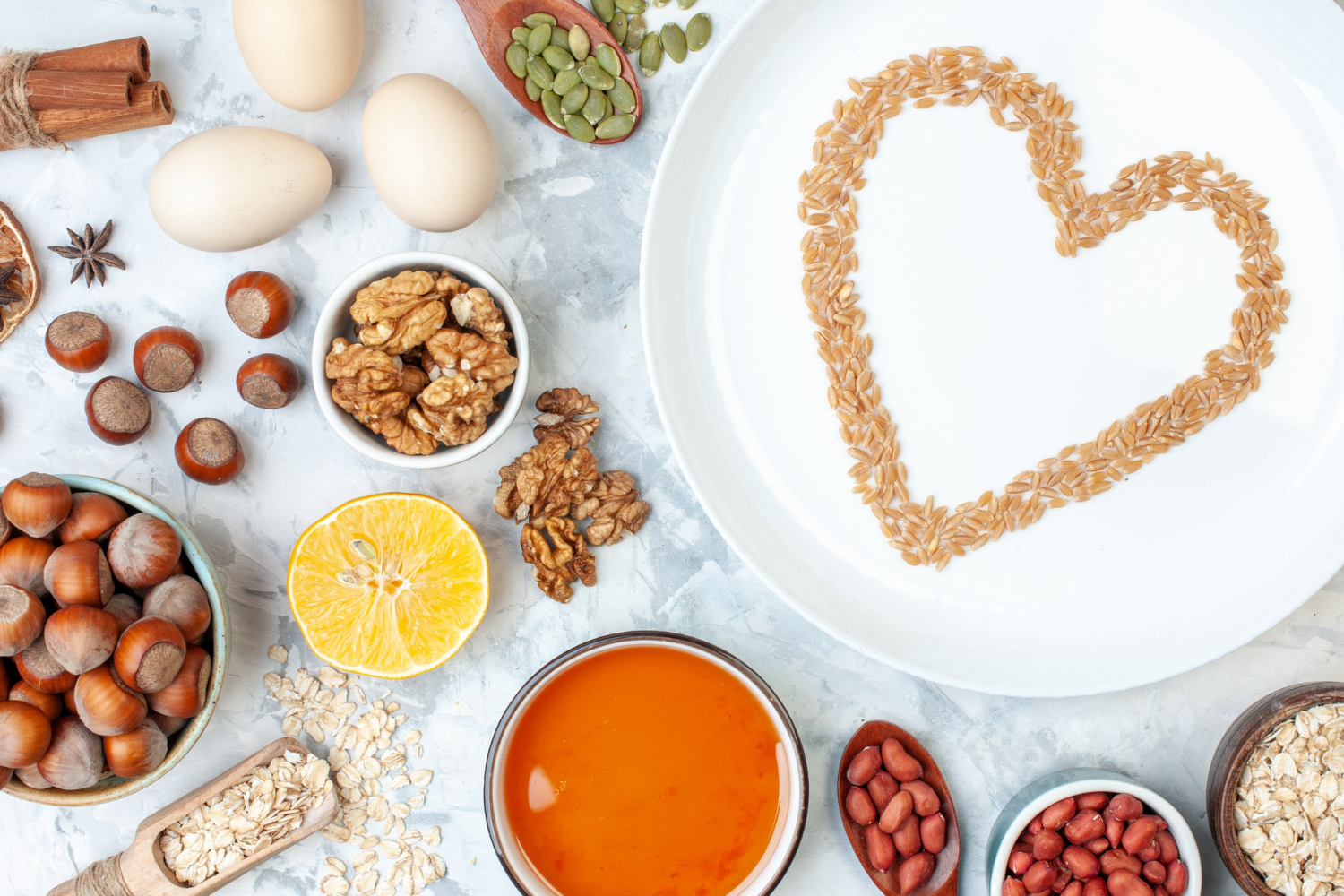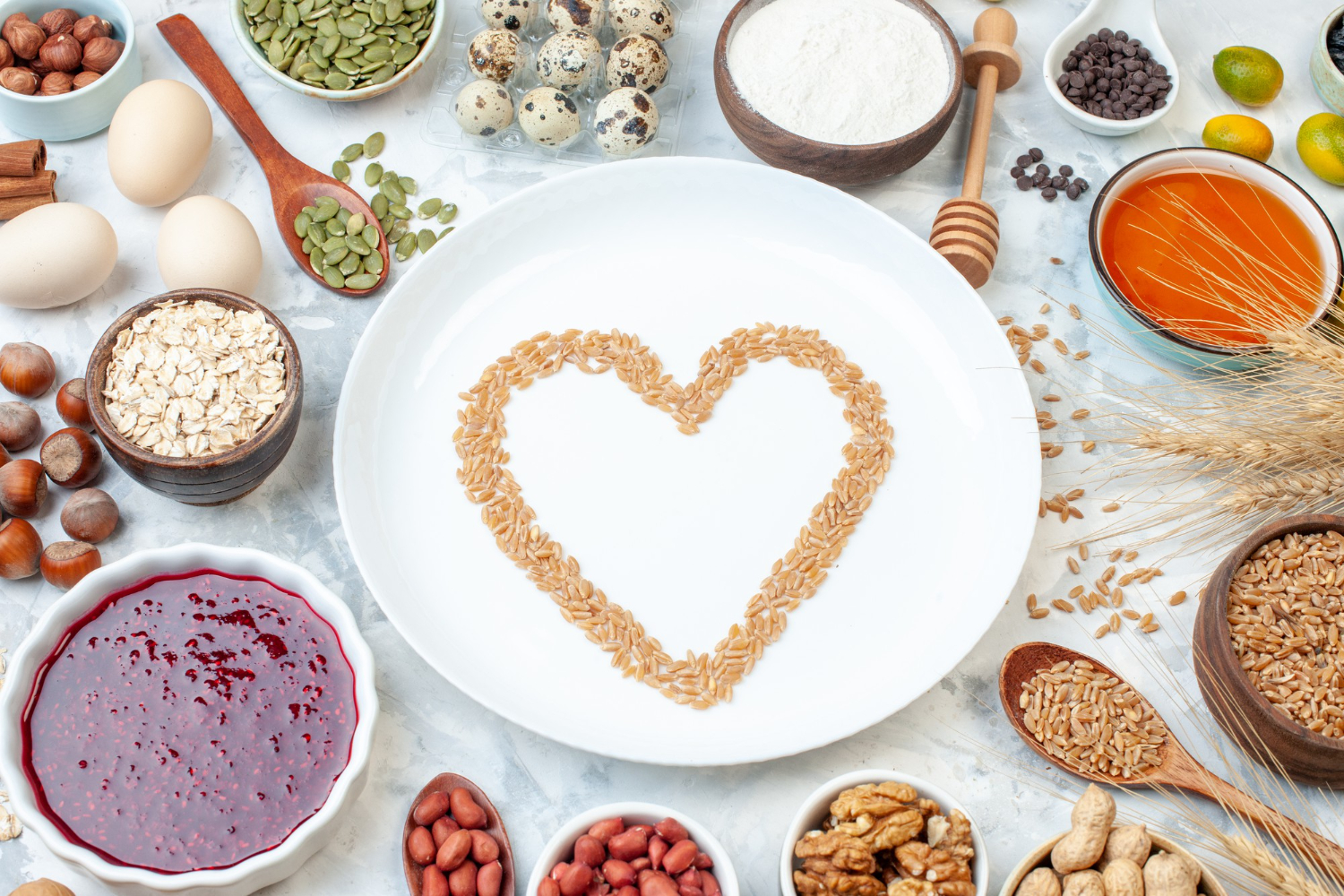
When the heart no longer beats silently…
It takes something to go wrong before we all can hear our heartbeat. The regular, unassuming beat that relentlessly strives to keep us alive from the moment of birth until our last breath. but one day you may pant in the midst of a common ascent of stairs, or the heart begins to beat over the outside of your chest when you sleep. What diagnosis are you the Doctor making? Your heart valve has a slight dilatation…Something which on the title page, perhaps, scares you, but take my word; that is a mere shadow, the reality of which is fairly controllable, provided that we can come to terms with it, acknowledge it, and most important, feed it in a social way, or, as it were, a friend, not an enemy. When you go through such a diagnosis or it happens with someone you love, the good news is you can still do a lot of things in your hands, even when you have reviewed a single food each daily, even these little choices at the table. You would not be expected to plunge into the language of medicine in this article. I need to know I can take your hand, explain in easy and scientific words what dilation of the heart valve is and how to make your heart feel good like a true friend through nutrition.
What is dilation of the heart valve and why is it important?
We have 4 valves in our hearts that are actually the doors of entry and exit of the blood, we put them just like a bank automatic door which would open and close when there is a stand that the blood should go round. Suppose at this moment that one of these doors is loose, and does not close quite well. Each time the heart attempts to drive the blood through the pipes, some of the blood would work its way back. It is referred to as dilation of heart valve or equivalently, valvular insufficiency. The most significant valves which are subjected to this malady:
- Aortic valve
- Mitral valve
Why should we be worried?
Because this backflow of blood causes the heart to work harder and harder to compensate, this means more strain on the heart muscle, an enlarged heart, premature fatigue, shortness of breath, and if left untreated, heart failure in the long term.
Common symptoms of dilated heart valves:
- Premature fatigue
- Reduced exercise tolerance
- Feeling of heart palpitations or palpitations
- Swelling of the legs (in advanced cases)
- Shortness of breath, especially when active or lying down
Nutrition: A Close Friend or a Silent Enemy of the Heart?
Food is one of them either the thing that cures a body gradually and gracefully, or gradually and silently kills. When it comes about the dilated heart valves, our food does not cause any harm directly, neither produces miracles, as in a thoughtless assistant, it can ease the burden on the heart, heal the progress of the disease and even alleviate some symptoms.
Why is nutrition important?
The heart works harder when not properly functioning through the valve. Now when it comes to unhealthy nutrition:
- Gain weight
- Raise our blood pressure
- Increase blood lipids and inflammation in the body
But in reality, we have added injustice to an already stressed heart.
In contrast, proper nutrition can:
- Keep blood pressure low
- Prevent weight gain
- Prevent fluid accumulation
- Control the body’s sodium (salt) levels
- Improves vascular and heart muscle function

What should we eat to make our hearts at ease?
In the case of dilated heart valves, one would always think of the medicine and the examination room probably first. The fact is that one of the most significant prescriptions is written not in the doctor office but in your kitchen.
1- Green leafy vegetables, potassium frontline soldiers
The vegetables which can aid in even balancing your blood pressure are spinach, beet leaves, lettuce, parsley, dill, and coriander since most of them contain a lot of potassium and little sodium. The natural anti-salt of the body is potassium. The prominent appearance of these vegetables on the table implies a chance of resting the worn-out heart.
2- Whole grains, a clean fuel for the heart
Some of the types of cereal grains include whole-grain bread, oats, brown rice, and whole wheat that unlike refined grains, do not increase the blood sugar index. They contain a lot of fiber and nutrients that reduce cholesterol and preserve the health of the vascular system.
3- Fatty Fish: Life Oil for the Heart
High doses of omega-3 fatty acids are found in cold-water fishlike trout, salmon, and tuna (not canned). These helpful fats lower inflammation, blood clotting processes and can ease the additional load to the heart.
4- Legumes: Plant-based, low-cost and beneficial protein
Lentils, chickpeas, red beans and pinto are high in fiber, plant protein, and B vitamins. They are a healthy substitute with those of very high in fat meats and enjoy a sense of long-lasting fullness without strain on the heart.
5- Healthy Oils: Fats to Love
Extra virgin olive oil, natural sesame oil, avocado oil, and even a small amount of walnut or tree almond oil are healthy sources of fat. These fats, if used in the right amounts, help lower bad cholesterol (LDL) and in turn raise good fat (HDL).
6- Nuts and Seeds: Smart Snacks
Nuts that include almonds, walnuts, raw and unsalted pistachios are full of healthy fats, antioxidants, and vitamins. Sesame, flaxseeds, and sherbet seeds have also properties of anti –inflammatory with promoting vascular health.
7- Low-sugar, antioxidant fruits
Pomegranates, plums, apples, blueberries, and strawberries are not only the natural sugars of life, but they are also high in antioxidant compounds that fix broken tissue and thwart oxidative processes in the veins.
What should we eat less or give up altogether?
Just like food can hold healing properties, but if we do not choose wisely, it does not become as poison behind a disguise. Especially when it comes to a heart which is fighting a dilated valve.
1- Salt: The Silent Enemy
The high content of food leads to retention of water by the body and high blood pressure. This puts a bigger load on the heart. Fully eliminating use of unnecessary table salt using natural flavors as lemon juice, orange, sumac, and milder spices option to lower vent load is costless and affects methodology.
2- Processed foods, good-looking traps
Sausages, sausages, canned products, nutrient-lose foods, chips and puffs contain salt, Trans fats, preservatives and synthetic compounds. These pollutants cause inflammation, increase blood lipids and pose a risk of heart failure.
3- Fatty red meat, little by little, not completely eliminated
The high fat mutton, hearts and kidneys, kale pacha and preserved meat to consumed spices against in the quantity and in control. If you enjoy eating red meat, choose lean veal or lean thighs, and serve with the likes of cooked and/or steamed vegetables.
4- Simple sweets and sugars
Carbonated drinks, candy, mass-produced cakes, jam, and factory chocolate raise blood sugar and inflammation and store fats in the belly. These compounds indirectly put pressure on the functioning of the heart by making the body less sensitive to insulin.
5- Trans and Saturated Fats
The greater sources of these fats include margarine, solid vegetable oil, breakfast cream, lots of animal butter and eating of fried foods. Frying should be avoided and in place of frying either steamed, grilled or boiled food should be used.
6- Carbonated, energy and alcoholic beverages
These drinks are not only nutritionally devoid, but may also lead to unstable heart and valves functionality due to higher kidneys load, more sugar, and fewer potassium levels in the body.
Iranian Eating Habits That Can Be Useful, and Those That Don’t!
Food culture of we Iranians is a treasure trove of good and bad habits. Specifically, it has made some of them show good heart over the years, and some not knowing it, have hurt and sickened it gradually.
1- Habits to be maintained or strengthened:
- Consumption of vegetable stews with low oil: The foods which have a high nutritional value and can be consumed in case they are cooked using low-fat meat and they are not fried, include Ghormeh sabzi stew and fresh vegetables, okra stew, and low-fat Fesenjan.
- Broth with lean meat and no tail: It may be a healthy and traditional meal in case the tail is removed and additional legumes are used in it.
- Using vegetables and low-salt homemade buttermilk: This Iranian compound is a natural potassium and calcium source as well as anti-bloating.
- Habit of whole-grain Sangak and Barbari bread: As long as it is fresh, low-salt and whole-grain, traditional breads are far more nutritious in comparison to fancy or white lavash breads.
2- And the habits that we need to reconsider:
- Too much frying foods in too much oil: The conduction of stuffing, cocoa, cutlets and even stewed vegetables can flood the heart when it swims through oil. The best thing is to compromise with a gentle roasting or a low-smothered heat.
- Tendency to salty foods: Excesses in pickles, salted cheese, highly salted factory buttermilk, and salted olives are among the foods that should be reduced and/or substituted with low-salt homemade.
- Excessive consumption of the bottom of the pot: When this is a regular, thick, and greasy flavor on the table, it will be converted into a risk factor of extinguishing. One is even better advised to make it a leisure activity.

Herbal Supplements and Medicines: Yes or No?
A lot of people are trying to find a natural means to facilitate the treatment, and this is what they refer to when they hear about dilated heart valves Herbal supplements and remedies are never in shortage. However, before I enter this spirit I must first clarify exactly where science and folklore begin and end.
1- Supplements that may be helpful (with a doctor’s opinion)
- Omega-3: It reduces triglycerides, improves vascular functioning and is one of the most commonly used supplements prescribed in patients with heart conditions given its anti-inflammatory effects.
- Coenzyme (Q10): The substance is significant in energy production in heart cells. Others have indicated that its frequent use can lower tiredness and enhance the quality of life among persons with heart problems.
- Magnesium: Abnormalities of the heart rhythm and hypertension have been attributed to magnesium deficiency. Supplements of magnesium may help, particularly in people eating a low-magnesium diet.
- Vitamin D: Cases of vitamin D deficiency may also be linked to chronic inflammation as well as weakening of the heart muscles. The recommendation is to have the amounts of this vitamin examined during a blood test and, where appropriate, to take a supplement.
2- Herbal Medicines: A Narrow Road Between Benefit and Risk
During the studies, some of the medicinal plants like hawthorn, garlic, ginger or turmeric have reported possession of the cardiac properties. However, the risk is that certain of these plants could:
- Cause heart rate fluctuations
- Interfere with heart medications
- Increase or decrease the effect of anticoagulants or blood pressure
Thus, it is essential to defer medical consultations with either a doctor or a nutritionist who will be aware of your situation before consuming any herbal medication or special tea.
Simple Meal Plan Example for a Day
Coming up with a daily menu plan will enable the patients to understand how to apply the general recommendations in practice. In this case, I will give you an example of an easy everyday diet:
Breakfast
- A glass of low-fat milk
- Fresh and whole-grain bread (1 palm)
- Eating vegetables (mint, basil, radishes, watercress)
- 1 boiled or half-boiled egg with low olive oil
- Low-salt cheese or homemade cheese with chopped walnuts (1 tablespoon)
Morning snack
- 5 raw almonds or walnuts
- 1 small apple or pomegranate
Lunch
- Low-salt and homemade buttermilk (without gas)
- Seasonal salad with lemon juice and olive oil
- Brown rice or mixed with lentils (low-oil lentil pilaf)
- Okra stew with low-fat veal or chicken breast
Evening snack
- A glass of diluted barberry juice or pale green tea
- 2 whole-grain biscuits or a palm of bread and cheese
Dinner
- 1 tablespoon olive oil on food
- Barley soup or noodle soup without curd and a lot of oil
- A plate of cooked or steamed herbs (carrots, squash, broccoli)
Before bed
- A glass of warm, low-fat milk or sedative brew (provided there are no drug interactions)
This sample regimen is not rigid and can be refined by the dietitian using age, activity level and medications, as well as the overall condition of the patient in order to fine tune it.
Final Thoughts
The diagnosis of a dilated heart valve can be frightening at first but according to reality many patients with small yet consistent changes in the lifestyle can lead a normal, active and high quality life over several years after such diagnosis. In this direction, nutrition is not only a peripheral recommendation but one of the main tools. Correct food choices will help to decrease the workload of the heart, slow the progression of the disease, as well as the necessity of postponing more radical methods of treatment. There is good news in that there is no need of austerity in dietary changes. We do not need to buy the health at the expense of taste. The Iranian food culture is rich in nutritious, genuine and tasty foods that may make the life full of living flavor when utilized in the right ways. Remember it is a walk not a run and gradually as you tackle the recovery over time you find your heart beating with less love as each step completes. Discover your heart, and then it will beat with your heart and soul a few years.
Resources
21 Foods That Can Save Your Heart








No comment yet, add your voice below!